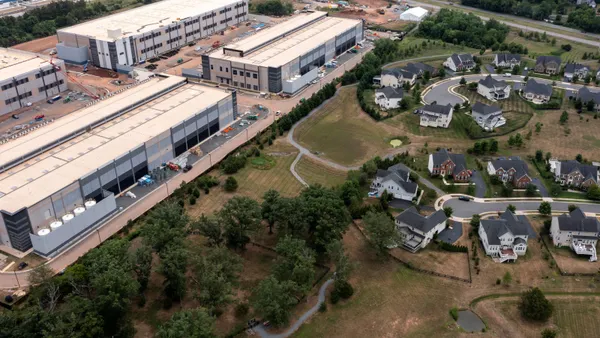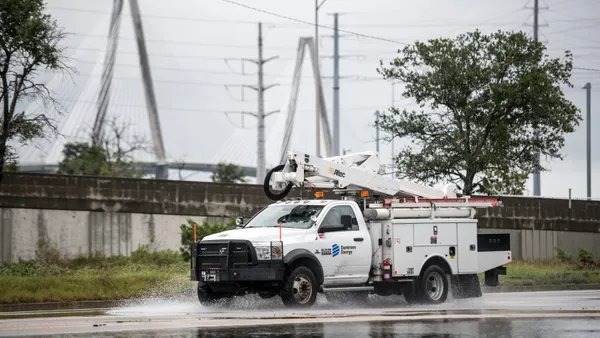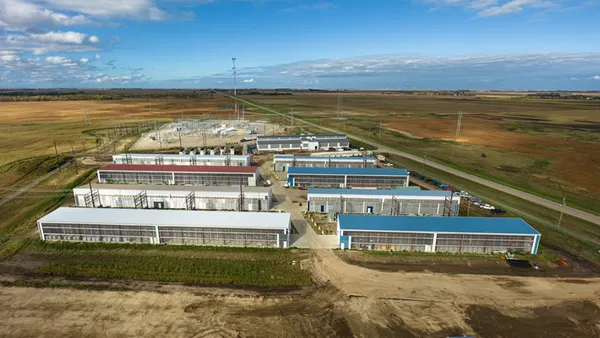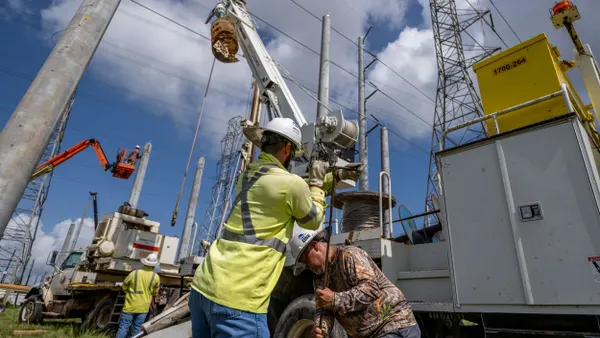Dive Brief:
- The Biden administration expressed support for policies that would overhaul the nation's electric transmission rules to unlock more capacity and plan for interregional transmission in a House hearing Tuesday.
- In the hearing before the House Energy and Commerce Subcommittee on Energy, Patricia Hoffman, acting assistant secretary in the Department of Energy's Office of Electricity, said transmission reform is a crucial step in meeting the administration's goal to achieve economy-wide net zero emissions by 2050. Transmission reform, Hoffman said, can increase the "reliability and resilience of infrastructure," while allowing "all forms of clean energy … to be best developed where they are most promising."
- House Democrats have proposed a massive grid overhaul as part of the Climate Leadership and Environmental Action for our Nation's (CLEAN) Future Act. The bill would create an Office of Transmission under the Federal Energy Regulatory Commission, lower barriers to interstate transmission construction and reform existing transmission policy, while adding a significant amount of new renewable resources to the grid.
Dive Insight:
Tuesday's hearing came as extreme heat in the Northwest taxed the electric grid and ahead of a summer where federal regulators have warned that Texas, California, New England and the Midwest face "elevated risk" of energy emergencies. Transmission reform, sponsors said, is a way to increase reliability during extreme weather events, bringing power from renewable generation to cities and regions in need. Hoffman said that better interconnection would "allow us to utilize the diversity of generation across the U.S. to support where there are outages."
However, the process of building new interconnection lines and adding them to the grid is notoriously slow. Delays in permitting and approvals have slowed development of renewables in some states and advocates say a process filled with red tape could delay much-needed upgrades.
"Speaking frankly, we need a major expansion of the electric transmission system to establish a net zero clean energy economy," said subcommittee chair Bobby Rush, D-Ill., citing a Princeton University study that found that U.S. would need to triple the size of its power grid by 2050 to achieve net zero emissions.
The Biden administration has not stated a position on the Clean Future Act, although there is overlap between the bill's goals and the administration's climate policy. In its $2 trillion American Jobs Plan, the Biden administration proposed creating a Grid Deployment Authority under DOE to support creative financing tools and leverage existing rights-of-way for new transmission. That proposal was also part of a bipartisan infrastructure deal between the White House and senators announced last week. Hoffman said that office would help "centralize and focus the department's authorities" and provide technical assistance to grid partners.
Besides the CLEAN Future Act, Tuesday's hearing also considered the Prevent Outages with Energy Resiliency Options Nationwide (POWER ON) Act from Rep. Scott Peters, D-Calif., which would support interstate transmission. The committee is also reviewing the Interregional Transmission Planning Improvement Act, which would change FERC's transmission planning process, and the Efficient Grid Interconnection Act, which would facilitate grid-enhancing technologies.
Although transmission reform is a bipartisan issue, committee Republicans expressed concern over Democrats' clean energy bill and the administration's approach. Rep. Fred Upton, R-Mich., said some of the proposed interconnection reforms would sap local authorities of decision-making power and siting authority by putting too much power in the hands of regional transmission organizations and independent system operators. Others said that under the notoriously slow transmission planning and approval process, the kind of grid overhaul being proposed would take years and would raise costs for consumers.
Rep. Cathy McMorris Rodgers, R-Wash., said the clean energy deployment goals defined by the administrations and the House bill would require "extraordinary mandates and costs on people."
Given the risk that clean energy development could outpace grid upgrades, she added that she was worried the effort "will take us backwards to a time before reliability and modern conveniences."
In separate testimony, Susan Tierney, a senior adviser at the economic research firm Analysis Group and a former DOE official, said the bills would "deftly tackle" the biggest challenges facing the grid, especially by allowing states to think regionally and more creatively about the electricity system. That, she said, would especially address the "chicken-and-egg problem" of renewable generation located far away from the biggest areas of need.













